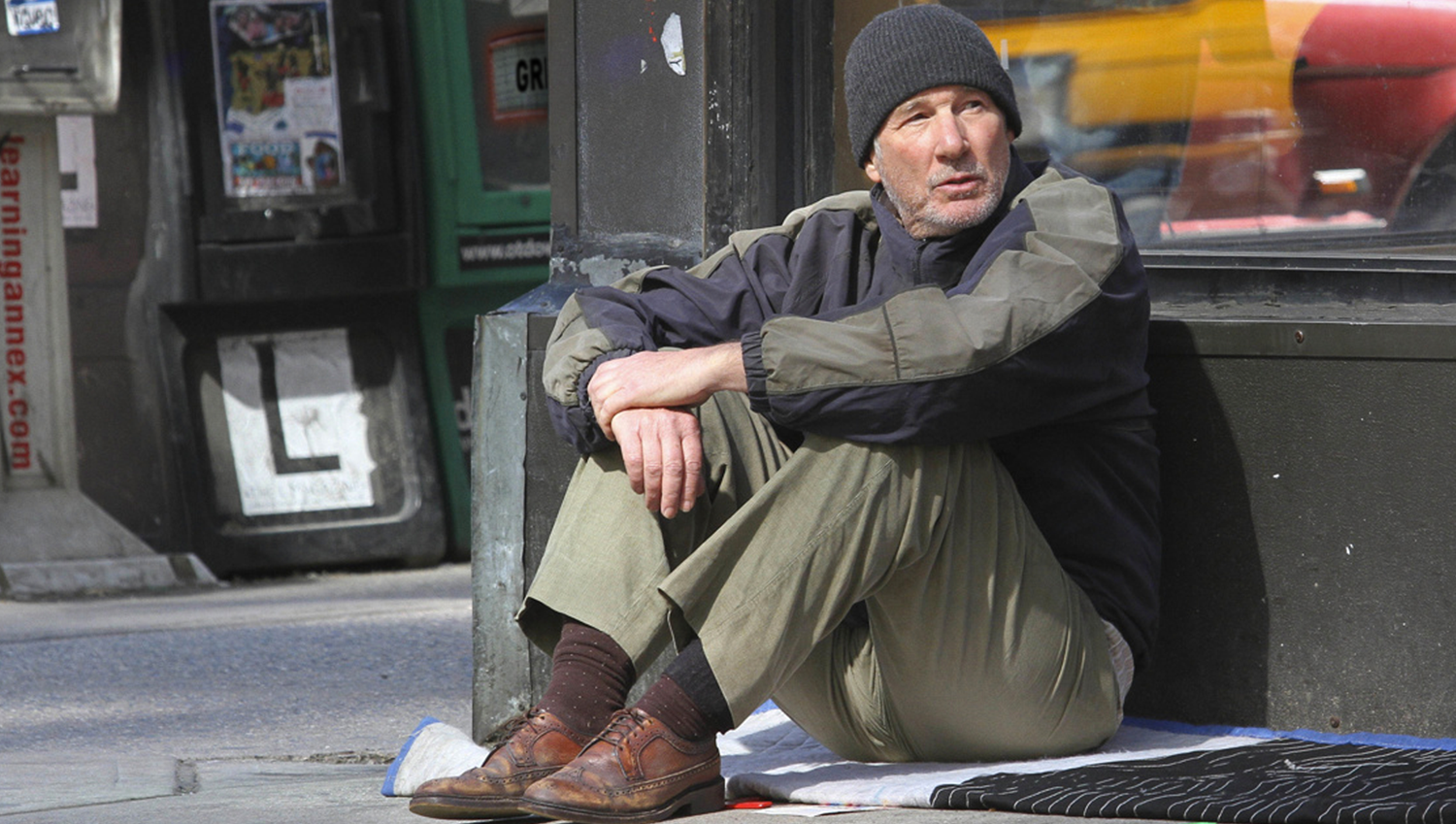
Time Out of Mind
Dustin Chase
Writer/director Owen Moverman helped Woody Harrelson reinvent his career with films The Messenger and Rampart. Now Moverman has created a unique and cinematic experience with Richard Gere. Experimental in nature, Time out of Mind follows a mentally unbalanced, alcoholic, homeless New York man as he wanders the streets. Moverman has Gere at the focus of the film but he is rarely at the center as we see and hear the world moving around him. Time out of Mind takes more patience than many viewers will be willing to give because it isn’t a traditional narrative, it’s far too long for a film with sparse dialogue on a heavy subject matter.
When we first meet George (Gere), he is squatting in an abandon apartment building. The building manager (Buscemi) discovers him and kicks him out after some back and forth babbling. George has been on the street a while, he shuffles to and from, learning that the local Sacred Heart gives out free coats to the homeless, which he constantly trades into a consignment shop for petty cash, which he wastes on alcohol. Certain shelters in the area will take in George even though he will rarely give his name, doesn’t have any form of id and gets hostel when the social workers try to create a profile on him. George really just wants to reconnect with his daughter Maggie (Malone) who works at a corner bar, but she is ambivalent to her father’s situation since he abandoned her at a young age.
It isn’t entertainment, there is nothing enjoyable about this film.
Time out of Mind is a sad story but rarely does Moverman use his script to play up the emotional side of George’s situation. Instead the director films George from a distance, often from the inside of a local business or doorway, looking out into the street, observing. Is the point of view supposed to be similar to how we view the homeless, averting our eyes and interest? Many times Moverman’s purpose isn’t clear and that’s what makes Time out of Mind confounding. It’s the supporting characters that do much of the talking or chatter as George navigates the city. The few intimate scenes with Malone as his daughter or those trying to help are few and far in between.
Bobby Bukowski certainly knows how to shoot the city, having worked with Overman previous on Rampart and The Messenger, this subject matter is second hand. It’s Richard Gere who is trying something outside of his normal performance. It isn’t so much that he is playing a realistic homeless person (remember the French lady who mistook Gere on the street for a real homeless person during filming), it’s the fact that he must deliver this performance without giving a performance. It isn’t entertainment, there is nothing enjoyable about this film, and it’s distressing to see a system that functions but rarely works depending on the mentality of the homeless. Gere, never nominated for an Oscar, gives such an inward and subtle performance it’s more than likely to be drowned out by flashier Oscar worthy fall films.
Final Thought
Fails to connect the viewer with its experimental narrative.
